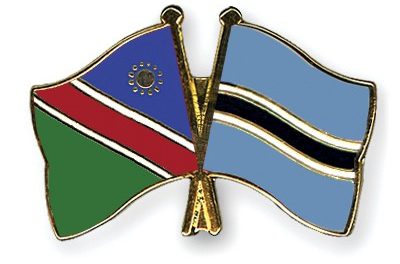
Emerging consumer themes force African retailers to re-invent and re-invest

NAIROBI – For too long Africa has been viewed as a new market for only a narrow range of globally produced and marketed consumer products. Today, however, the full range of global consumer themes – health and wellness, convenience, indulgence, low/no calories and food protection – are major consumer and retail themes in Africa, according to Standard Bank’s Executive of Consumer Client Coverage, Brendan Grundlingh.
This not only presents global marketers with a wider market, but also, “provides Africans with an opportunity to participate in the global consumer sector – as producers and suppliers – of new and innovative products that speak to global consumer trends,” he added.
There is huge opportunity, for example, for existing digital and new speech technology to utilise algorithms to reduce the price of a basic basket of goods targeting poor households in Africa. Further opportunities are presented by innovation in e-commerce combining new distribution models, including perhaps, delivery of goods or even medicines via drone to remote locations.
According to Grundlingh, the fact that global consumer trends are increasingly favouring the niche and the local over the global and the general presents Africa with further opportunity. While this is part of a broader trend to sustainability and social and economic justice in production and consumption, it means that increasingly larger multinationals that previously dominated the personal care sector, for example, are either losing out to smaller local players, “or are being forced to buy out and incorporate the offerings of local champions into their brands.”
As such, looking ahead in Africa there is scope for smaller niche players who are comfortable with ethnic and cultural diversity to win market share from larger multinationals by using, “the smart, the small, and the local, to scale products though innovation or bring entirely new technologies to delivery and service.
With health and wellness emerging as strong consumer themes in Africa over the last five years, food manufacturers that previously provided a handful of products now have an opportunity to develop an integrated range of healthy food products for use across the full human life cycle.
Food production and supply innovation also fit well with Africa’s strong medical consumer themes. The bulk of Africa’s heath challenges are related, directly or indirectly, to food and nutrition.
The nexus between food and health, combined with disruptive technologies, presents broad opportunity for African entrepreneurs to service local markets by adapting and evolving the emerging consumer themes.
“Much of this change in Africa is driven by the same global sustainability and health and wellness concerns evident in the rest of the world. For example, Kenya has become the latest African country to ban plastic bags due their negative environmental impact. Soon the kind of change that global reactions to sugar have driven in food and beverage evolution will very soon drive change in Africa too. For example, large soft drink multinationals – many of them with products unchanged for almost a century – are rapidly developing entirely new product ranges, marketing philosophies and distribution technologies as, increasingly, global populations turn away from sugar” said Grundlingh.
The most exciting aspect of this evolution is that beyond the continent’s rapidly evolving domestic consumer landscape, “Africa is, today, evidencing a strong ability to absorb consumer themes from the rest of the world, adapt these locally, and export new consumer combinations to the rest of the world” he concluded.













































